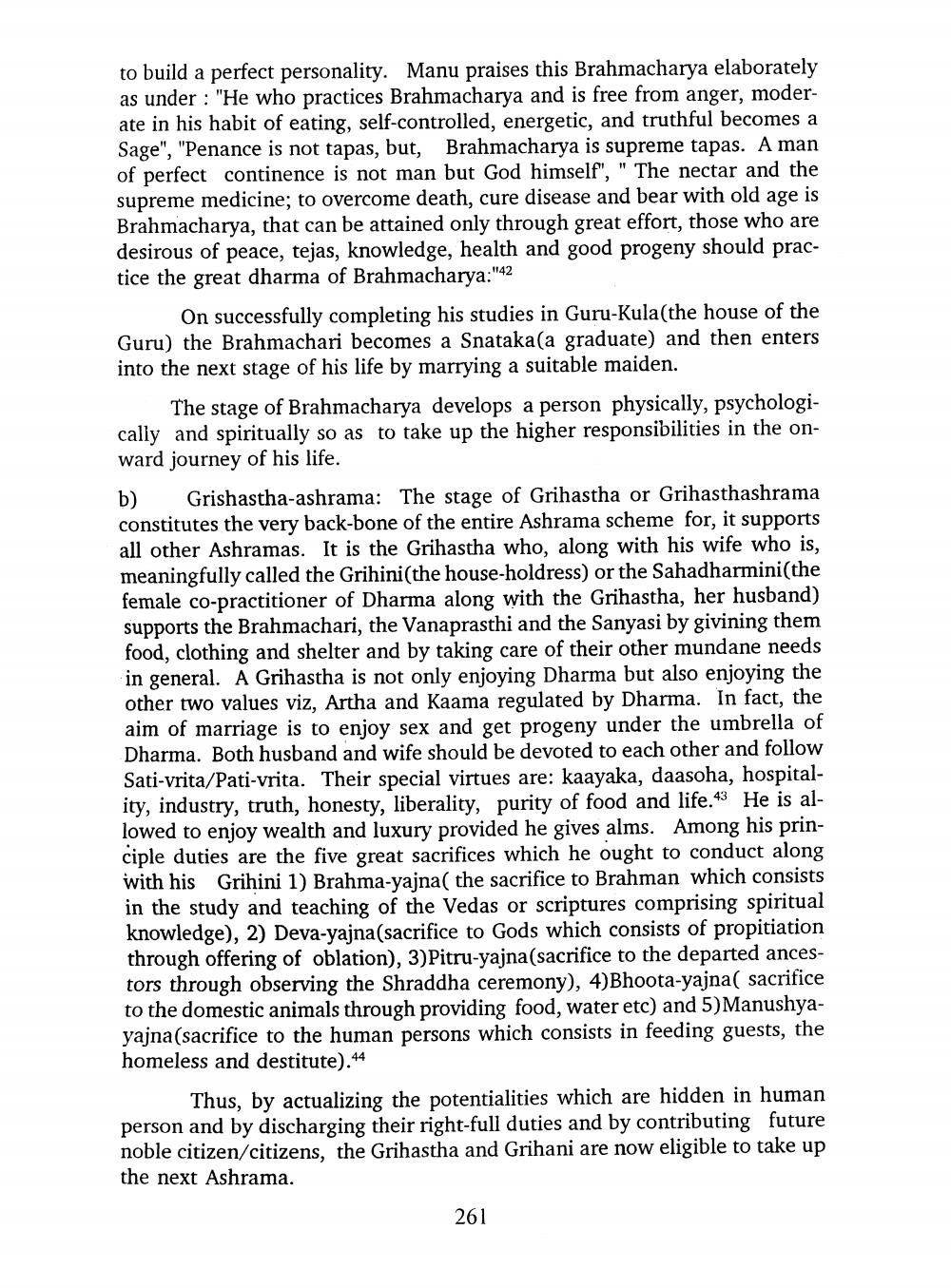________________
to build a perfect personality. Manu praises this Brahmacharya elaborately as under : "He who practices Brahmacharya and is free from anger, moderate in his habit of eating, self-controlled, energetic, and truthful becomes a Sage", "Penance is not tapas, but, Brahmacharya is supreme tapas. A man of perfect continence is not man but God himself", " The nectar and the supreme medicine; to overcome death, cure disease and bear with old age is Brahmacharya, that can be attained only through great effort, those who are desirous of peace, tejas, knowledge, health and good progeny should practice the great dharma of Brahmacharya:"42
On successfully completing his studies in Guru-Kula(the house of the Guru) the Brahmachari becomes a Snataka(a graduate) and then enters into the next stage of his life by marrying a suitable maiden.
The stage of Brahmacharya develops a person physically, psychologically and spiritually so as to take up the higher responsibilities in the onward journey of his life. b) Grishastha-ashrama: The stage of Grihastha or Grihasthashrama constitutes the very back-bone of the entire Ashrama scheme for, it supports all other Ashramas. It is the Grihastha who, along with his wife who is, meaningfully called the Grihini(the house-holdress) or the Sahadharmini(the female co-practitioner of Dharma along with the Grihastha, her husband) supports the Brahmachari, the Vanaprasthi and the Sanyasi by givining them food, clothing and shelter and by taking care of their other mundane needs in general. A Grihastha is not only enjoying Dharma but also enjoying the other two values viz, Artha and Kaama regulated by Dharma. In fact, the aim of marriage is to enjoy sex and get progeny under the umbrella of Dharma. Both husband and wife should be devoted to each other and follow Sati-vrita/Pati-vrita. Their special virtues are: kaayaka, daasoha, hospitality, industry, truth, honesty, liberality, purity of food and life.43 He is allowed to enjoy wealth and luxury provided he gives alms. Among his principle duties are the five great sacrifices which he ought to conduct along with his Grihini 1) Brahma-yajna( the sacrifice to Brahman which consists in the study and teaching of the Vedas or scriptures comprising spiritual knowledge), 2) Deva-yajna(sacrifice to Gods which consists of propitiation through offering of oblation), 3)Pitru-yajna(sacrifice to the departed ancestors through observing the Shraddha ceremony), 4)Bhoota-yajna( sacrifice to the domestic animals through providing food, water etc) and 5)Manushyayajna(sacrifice to the human persons which consists in feeding guests, the homeless and destitute).44
Thus, by actualizing the potentialities which are hidden in human person and by discharging their right-full duties and by contributing future noble citizen/citizens, the Grihastha and Grihani are now eligible to take up the next Ashrama.
261




